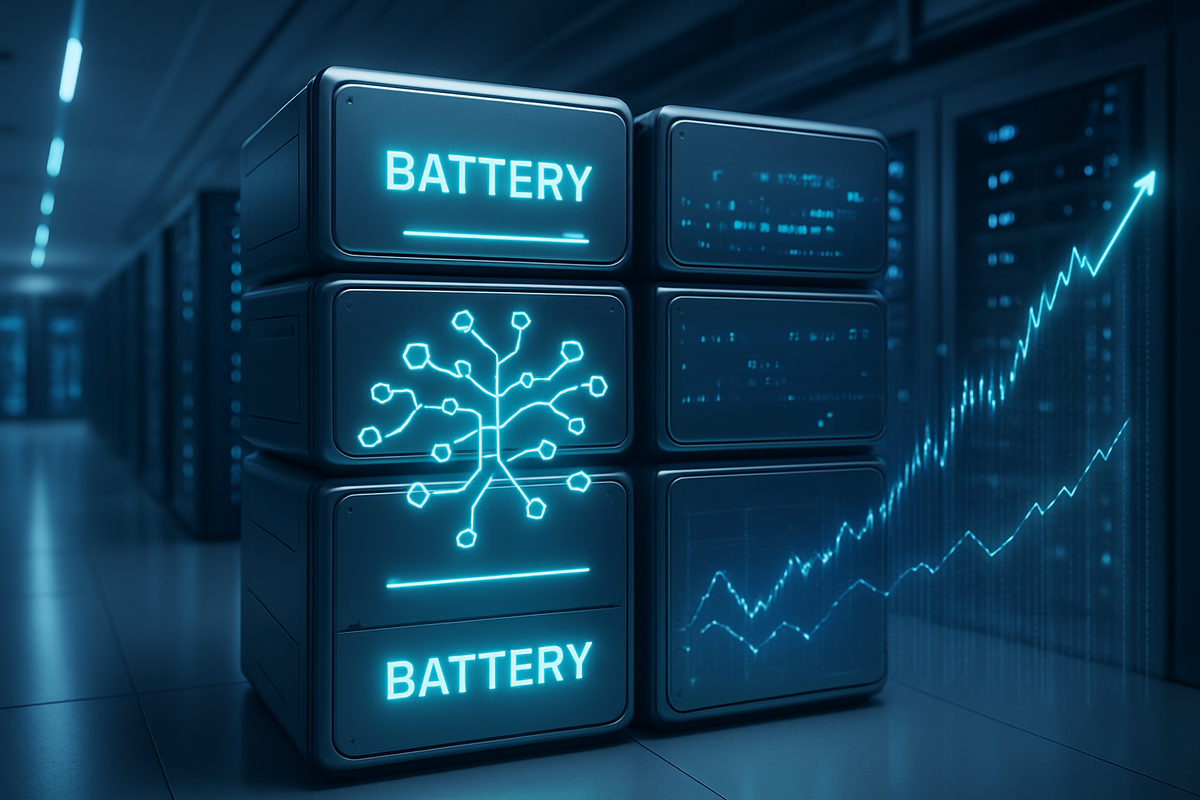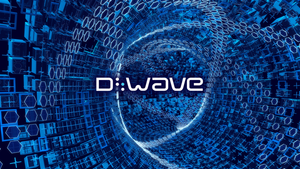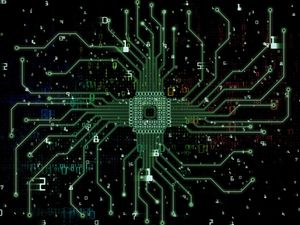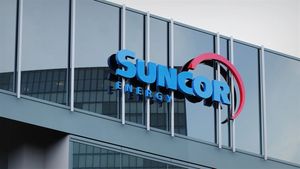
Solidion Technology Inc. (NASDAQ: STI) witnessed an unprecedented surge in its stock price today, skyrocketing by a staggering 100% following the announcement of its revolutionary PEAK Series Uninterruptible Power Supply (UPS) system. This game-changing battery technology is specifically designed to meet the insatiable power demands of the rapidly expanding Artificial Intelligence (AI) data center market. The immediate market reaction underscores a profound shift in investor confidence, positioning Solidion Technology as a potential frontrunner in providing essential infrastructure for the AI revolution.
The dramatic uplift comes as a significant turning point for Solidion Technology, whose stock had faced considerable headwinds, losing over 84% in 2025 prior to this announcement. The unveiling of the PEAK Series, with its promise of enhanced energy density, reliability, and cost efficiency for AI data centers, instantly ignited investor enthusiasm, leading to a massive increase in trading volume and an overwhelmingly bullish sentiment across financial platforms. This sudden reversal highlights the market's hunger for innovative solutions addressing the critical power challenges within the burgeoning AI sector.
Game-Changing Technology Targets AI's Power Demands
The core of Solidion Technology's recent triumph lies in its newly unveiled PEAK Series UPS system, a next-generation battery solution meticulously engineered to address the intense power requirements of modern AI data centers. The announcement, made on Monday, October 13, 2025, sent ripples of excitement through the market, recognizing the strategic importance of reliable and efficient power infrastructure for the burgeoning AI industry. This new system incorporates Solidion's proprietary 5500 battery cell, which leverages advanced silicon-carbon anode technology. This innovation is touted to deliver superior energy density, enhanced reliability, and significant cost efficiencies, setting a new benchmark for backup power solutions.
Key features of the PEAK Series are particularly compelling for data center operators. The system promises up to a 30% reduction in physical space compared to conventional backup power solutions, a critical advantage in optimizing valuable data center floor space where every square foot counts. Furthermore, it boasts a lower total cost of ownership through reduced maintenance requirements and simplified rack and harness designs. Perhaps most impressively, the 5500 cell is designed for an extended battery life, projected to last up to three times longer than traditional backup systems, offering unparalleled longevity and stability for continuous AI operations.
The timeline leading up to this moment reflects a strategic pivot by Solidion Technology towards high-growth, high-demand sectors. While the company has been developing advanced battery technologies for some time, the explicit targeting of AI data centers with a purpose-built solution marks a significant strategic move. Solidion Technology anticipates the commercial availability of the PEAK Series in the first quarter of 2026 and is already engaged in early integration and testing phases with select data center partners, signaling strong industry validation even before general release. This forward-looking approach positions Solidion (NASDAQ: STI) as a key player in a critical, underserviced segment of the global power infrastructure market.
The initial market reaction was swift and decisive. Beyond the 100% stock surge, Solidion Technology experienced an extraordinary increase in trading volume, with over 24 million shares exchanged in pre-market trading alone, dwarfing its three-month daily average of approximately 3.31 million units. Investor sentiment, as reflected on platforms like Stocktwits, rapidly escalated from 'bullish' to 'extremely bullish,' accompanied by an 'extremely high' jump in message volume. This immediate and overwhelmingly positive response underscores the market's recognition of Solidion's potential to capitalize on the immense power demands of the AI sector.
Market Dynamics: Winners and Losers in the AI Power Race
The unveiling of Solidion Technology's (NASDAQ: STI) PEAK Series UPS system is poised to create distinct winners and losers within the energy storage and data center infrastructure sectors. The most obvious beneficiary is Solidion Technology itself. With its stock soaring and investor sentiment at an all-time high, the company is now in a much stronger position to attract further investment, secure strategic partnerships, and accelerate the commercialization of its AI-focused battery solutions. The advanced silicon-carbon anode technology in its 5500 battery cell could become a significant competitive differentiator, allowing Solidion to capture a substantial share of the rapidly expanding AI data center power market. This success could also pave the way for future innovations and diversification within the high-performance battery segment.
On the other hand, traditional UPS and battery manufacturers, particularly those reliant on older lithium-ion or lead-acid technologies, might face increased competitive pressure. Companies like Eaton (NYSE: ETN), Vertiv (NYSE: VRT), and Schneider Electric (EPA: SU) are major players in the data center power and cooling market. While these giants have established market share and diverse portfolios, Solidion's specialized, high-density, and long-life solution for AI could force them to accelerate their own R&D into more advanced battery chemistries and space-saving designs. If Solidion's technology proves to be as disruptive as promised, these established players may need to invest heavily in similar next-generation technologies or risk losing market share in the lucrative AI data center segment.
Furthermore, the ripple effect could extend to raw material suppliers. If silicon-carbon anode technology gains widespread adoption, demand for specific grades of silicon and carbon materials could increase, benefiting specialized material providers. Conversely, companies heavily invested in traditional graphite-based anode materials might see a shift in demand patterns over the long term. Data center operators, such as those run by hyperscalers like Amazon (NASDAQ: AMZN) Web Services, Microsoft (NASDAQ: MSFT) Azure, and Google (NASDAQ: GOOGL) Cloud, stand to gain significantly from Solidion's innovation. These companies are constantly seeking more efficient, reliable, and compact power solutions to support their ever-growing AI workloads. Solidion's PEAK Series offers a compelling proposition to reduce operational costs, optimize space, and enhance the resilience of their critical infrastructure.
Ultimately, the competitive landscape will depend on how quickly Solidion can scale production and how effectively its technology performs in real-world AI data center environments. Should it deliver on its promises, Solidion could disrupt the status quo, prompting a wave of innovation across the battery and power management industries. Companies that are slow to adapt to these advanced battery chemistries and integrated solutions for AI-specific demands may find themselves at a disadvantage in a market increasingly driven by specialized, high-performance power infrastructure.
Wider Significance: Powering the AI Revolution
Solidion Technology's (NASDAQ: STI) breakthrough with its PEAK Series UPS system is more than just a stock market event; it represents a significant milestone within broader industry trends. The AI revolution, while promising unprecedented advancements, is profoundly energy-intensive. Training large language models and running complex AI algorithms require immense computational power, which, in turn, demands robust, efficient, and reliable electrical infrastructure. Solidion's innovation directly addresses this critical bottleneck, fitting perfectly into the overarching trend of developing specialized hardware and power solutions tailored for AI workloads. This event highlights the growing recognition that the future of AI is intrinsically linked to advancements in energy storage and management.
The potential ripple effects on competitors and partners are substantial. Other battery manufacturers and power management companies are now on notice. The success of Solidion's silicon-carbon anode technology could spur a new wave of research and development across the industry, accelerating the adoption of next-generation battery chemistries beyond traditional lithium-ion. Companies like LG Energy Solution (KRX: 373220), Samsung SDI (KRX: 006400), and Panasonic (TYO: 6752), while dominant in EV and consumer electronics batteries, might intensify their focus on high-density, long-duration solutions for stationary storage, particularly for data centers. For data center partners, Solidion's solution offers a competitive edge, allowing them to deploy more powerful AI infrastructure within existing footprints, potentially reducing the need for costly expansions or new facility builds.
Regulatory and policy implications could also emerge as AI data centers proliferate. Governments and energy regulators are increasingly concerned about the massive energy consumption of data centers and their carbon footprint. Solutions like Solidion's, which promise greater efficiency, reduced space, and longer lifespans, could be favored or even incentivized through policy. There might be a push for stricter energy efficiency standards for data center power infrastructure, creating a more favorable environment for advanced battery technologies. This could also intersect with broader initiatives for grid stability and renewable energy integration, as efficient backup power can play a role in demand response and energy management.
Historically, major technological shifts have always been accompanied by innovations in supporting infrastructure. Just as the internet boom drove the expansion of fiber optics and server farms, the AI revolution is now driving demand for advanced semiconductors, specialized cooling systems, and, crucially, superior power management. Comparisons can be drawn to the early days of cloud computing, where companies that provided scalable and efficient hardware infrastructure saw exponential growth. Solidion's current trajectory suggests it could be playing a similar foundational role for the AI era, providing the essential "nervous system" of power that allows AI to function reliably and at scale.
What Comes Next: Navigating the Future of AI Power
The immediate aftermath of Solidion Technology's (NASDAQ: STI) announcement will likely see continued volatility and intense investor scrutiny. In the short term, market participants will be closely watching for further details on Solidion's early integration and testing partnerships, as well as any updates regarding the commercial availability in Q1 2026. Successful pilot deployments and positive feedback from initial data center partners will be crucial for sustaining momentum and validating the technology's real-world performance. Any delays or technical hiccups, however, could temper the current euphoria. Solidion will also need to demonstrate its ability to scale manufacturing to meet anticipated demand, a common challenge for companies introducing disruptive hardware.
Longer term, the possibilities for Solidion Technology are expansive. If the PEAK Series lives up to its promises, Solidion could become a dominant force in the AI data center power market, potentially expanding its offerings to other high-demand, mission-critical applications requiring advanced energy storage. This could lead to strategic pivots for the company, potentially involving licensing its silicon-carbon anode technology, forming joint ventures with larger power infrastructure providers, or even becoming an acquisition target for a tech giant looking to secure its AI power supply chain. The company's success could also pave the way for broader adoption of silicon-carbon battery technology across other sectors, including electric vehicles and grid-scale energy storage, though these would require significant additional R&D and market entry strategies.
Market opportunities will undoubtedly emerge for companies that can integrate Solidion's technology or develop complementary solutions. This includes advanced thermal management systems specifically designed for high-density AI racks powered by efficient UPS systems, as well as software solutions for intelligent power management and predictive maintenance for these next-generation batteries. Challenges will also arise, particularly for competitors forced to rapidly innovate or risk obsolescence. The intense competition in the battery and data center infrastructure markets means that Solidion will need to continuously push the boundaries of its technology to maintain its edge.
Potential scenarios range from Solidion becoming a cornerstone supplier for the global AI infrastructure, to facing fierce competition that dilutes its market share. A best-case outcome sees Solidion's technology widely adopted, driving significant revenue growth and potentially establishing it as a leader in advanced battery solutions for specialized applications. A more challenging scenario might involve established players quickly replicating similar technologies or new entrants emerging with even more disruptive solutions, requiring Solidion to continually reinvest in R&D and protect its intellectual property vigorously.
Comprehensive Wrap-Up: A New Era for AI Infrastructure
Solidion Technology's (NASDAQ: STI) monumental stock surge following the revelation of its PEAK Series UPS system marks a pivotal moment, not just for the company, but for the broader landscape of AI infrastructure. The key takeaway is the market's emphatic validation of specialized, high-performance power solutions as an indispensable component of the AI revolution. Solidion's silicon-carbon anode battery technology, promising superior energy density, space efficiency, and extended lifespan, directly addresses the escalating and complex power demands of AI data centers, which have become a critical bottleneck for the industry's growth. This event underscores the immense value placed on innovation that solves fundamental infrastructure challenges for emerging technologies.
Moving forward, the market will undoubtedly be assessing Solidion's ability to transition from a promising announcement to successful commercial execution. The company's strategic positioning in the AI data center segment, a market characterized by rapid growth and high demand, provides a robust foundation for future expansion. However, sustained success will hinge on its manufacturing capabilities, the performance of the PEAK Series in real-world environments, and its capacity to fend off competition from established players and other innovators. This event could catalyze a broader shift across the energy storage sector, encouraging greater investment in advanced battery chemistries and application-specific power solutions.
In final thoughts on its significance and lasting impact, Solidion's breakthrough could be remembered as one of the early indicators of how the AI era reshapes industrial infrastructure. It highlights that the AI race is not just about chips and algorithms, but also about the foundational elements that power them. For investors, the coming months will be crucial. They should closely watch for updates on Solidion's testing phases, any new partnerships, and, most importantly, the actual commercial launch and initial sales figures of the PEAK Series in Q1 2026. Furthermore, monitoring the competitive response from other battery and power management companies will provide insights into the long-term sustainability of Solidion's current competitive advantage. The future of AI is bright, and companies like Solidion Technology are proving essential in literally powering that future.
This content is intended for informational purposes only and is not financial advice







